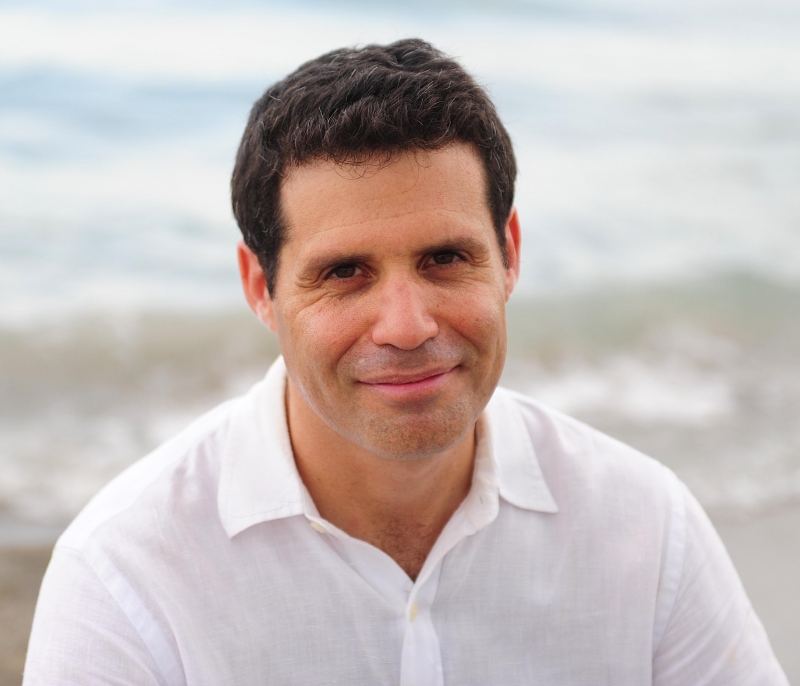Priorities for the New Year
Priorities for the New Year

Once there was an emperor. The emperor had an absolutely magnificent vase that was ancient and intricately beautiful. One day someone let the vase fall, and it split into millions of fragments. The fragments were gathered up, and the best potter in the land was called to reassemble the vase. He tried but failed. He paid for his failure by losing his head. The emperor ordered the next-best potter, and he also failed. This continued for weeks, until finally all the best artists in the land had died, having failed to reassemble the broken, beautiful vase. There was only one artist left, an old Zen monk who lived in a cave in the mountains. He had a young apprentice. The monk came and collected all the fragments himself and brought them back to his work shed. For weeks and weeks he worked until finally the vase was whole again. The apprentice looked at it and thought how beautiful it was. The two of them made the journey to the city and brought the vase into the palace. The emperor and all his courtesans beamed in admiration at the beauty of the reassembled vase. The old Zen monk was graciously rewarded. He and his young apprentice went back to their cave in the mountains. Then, one day, the young apprentice was looking for something and unexpectedly came upon the fragments of the vase. He ran in to his master: “Look at all the fragments of the vase, you never assembled them all. How did you make a vase as beautiful as the ancient one that was broken?” The old master said, “If you do the work that you do from a loving heart, then you will always be able to make something beautiful.”
You probably heard a Jewish version of the story from your mother or grandmother. After complimenting her for the out-of-this-world challah she baked, her reply was, “You know my secret ingredient, don’t you?” and without waiting for a response, she answered her own question, “Love, pure love”. It is true. When we love what we do, we do it beautifully. But can we love everything we do? Is it possible for every task we perform to get the same attention? I don’t think so.
When the story was written, potters used all their time and energy to make pottery, and shoemakers gave it all to their craft. Imagine yourself as one of these shoemakers today. On top of making shoes, you have to deal with marketing, cash flow, staff management, and your shoes’ ranking on Amazon. At 4:00pm you need to take your daughter to soccer practice, and at 5:00pm your son’s Bar Mitzvah lesson starts at Temple. At 7:00pm everyone is expecting a gourmet gluten-free and mostly-vegan dinner. And unlike the Zen monk in the story who lived in a cave, you live in a highly mortgaged house and need to take care of it. Can you really perform every task with love and dignity?
I can get anywhere without help, except when they change the roads and give streets new names (which apparently happens all the time). At that point, I open the GPS app in my phone, feeling only slightly less humiliated asking her, rather than a human being, for directions. She always begins the same way “when it’s safe make a U-turn”, which is the GPS polite way of saying: “You just spent 15 minutes driving in the wrong direction”. Redirection is also the message of the High Holy Days. We are told to stop feeling guilty for not doing everything wholeheartedly. We need to sort from our cluttered life the components that we want to give our full love and attention to and make them beautiful. And what about the rest? Either make peace with yourself that they will only be done in a good enough way or find a way to outsource them. Fake it with dinner (it has never been your thing anyway), but shoot more hoops with the kids (you all love it so much). Leave the finances to the accountant and put all the love into making the best shoes.
Shanah Tovah from my family to yours!
Thu, July 31 2025
6 Av 5785
Upcoming Events
-
Thursday ,
JulJuly 31 , 2025TODDLER ENRICHMENT PROGRAM
Thursday, Jul 31st 10:00a to 11:15a
-
Thursday ,
JulJuly 31 , 2025Canasta
Thursday, Jul 31st 1:00p to 3:00p
-
Friday ,
AugAugust 1 , 2025TODDLER ENRICHMENT PROGRAM
Friday, Aug 1st 10:00a to 11:15a
-
Friday ,
AugAugust 1 , 2025Shabbat Service
Friday, Aug 1st 6:30p to 7:30p
-
Wednesday ,
AugAugust 6 , 2025Mah Jongg
Wednesday, Aug 6th 1:00p to 3:00p
-
Thursday ,
AugAugust 7 , 2025Canasta
Thursday, Aug 7th 1:00p to 3:00p
-
Friday ,
AugAugust 8 , 2025Shabbat Service
Friday, Aug 8th 6:30p to 7:30p
-
Saturday ,
AugAugust 9 , 2025Men's Club Summer Dinners at Cafe Sole
Shabbat, Aug 9th 6:30p to 7:30p
-
Monday ,
AugAugust 11 , 2025BOOK CLUB - THE OVERSTORY - Richard Powers
Monday, Aug 11th 10:30a to 12:00p
-
Wednesday ,
AugAugust 13 , 2025Mah Jongg
Wednesday, Aug 13th 1:00p to 3:00p
Update this content.
Come Together
Something meaningful and dynamic is happening here at Temple Beth Am. It springs from the warmth of our welcome and the energy of our actions. We call it: Kulanu - All of Us Together.
Join UsUpcoming Events
-
Thursday ,
JulJuly 31 , 2025TODDLER ENRICHMENT PROGRAM
Thursday, Jul 31st 10:00a to 11:15a
-
Thursday ,
JulJuly 31 , 2025Canasta
Thursday, Jul 31st 1:00p to 3:00p
-
Friday ,
AugAugust 1 , 2025TODDLER ENRICHMENT PROGRAM
Friday, Aug 1st 10:00a to 11:15a
-
Friday ,
AugAugust 1 , 2025Shabbat Service
Friday, Aug 1st 6:30p to 7:30p
-
Wednesday ,
AugAugust 6 , 2025Mah Jongg
Wednesday, Aug 6th 1:00p to 3:00p
Privacy Settings | Privacy Policy | Member Terms
©2025 All rights reserved. Find out more about ShulCloud

